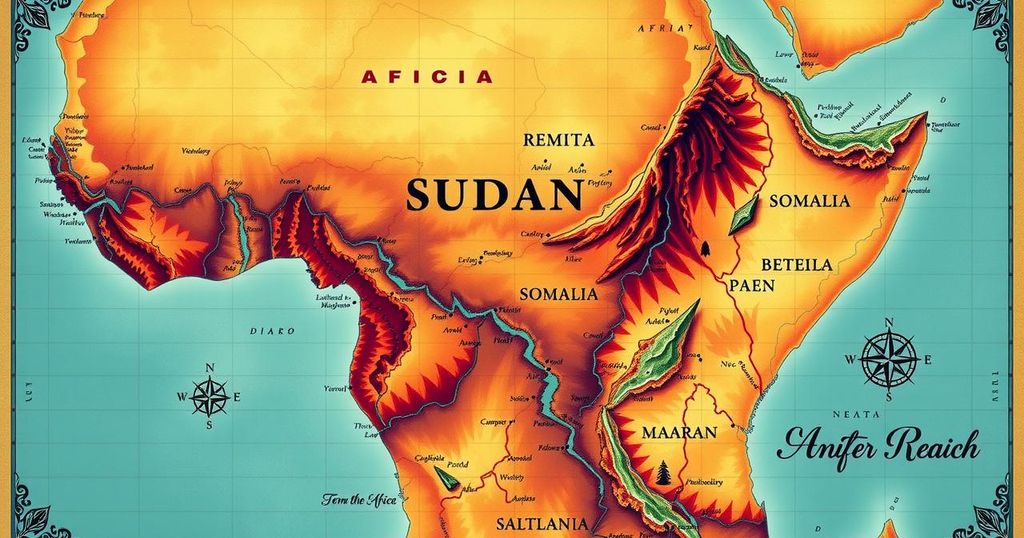The US and Israel have approached Sudan, Somalia, and Somaliland to discuss relocating Palestinians from Gaza as part of Trump’s postwar plan, despite widespread condemnation. Sudan has rejected these overtures, while Somaliland and Somalia deny any involvement. The plan raises serious legal and moral issues regarding the potential displacement of over two million Palestinians, garnering opposition from rights groups and Arab nations.
The United States and Israel have initiated conversations with officials from Sudan, Somalia, and Somaliland regarding the potential resettlement of Palestinians displaced from Gaza following President Donald Trump’s proposed postwar strategy. This ambitious plan, which has faced widespread criticism, suggests that over two million Palestinians may be permanently relocated, raising significant humanitarian and legal concerns. Despite the apparent enthusiasm from the US and Israel, officials from Sudan have reportedly rejected the proposal outright. Somalia and Somaliland have denied any awareness of such discussions.
President Trump’s controversial outline includes the US taking control of Gaza, conducting a cleanup, and transforming it into a real estate project. Despite its seemingly innovative prospects, the mass transfer of Palestinians was once regarded as a fringe idea, but has now garnered support from Israeli Prime Minister Benjamin Netanyahu as a progressive vision for the future. Palestinian leaders and various Arab nations have vehemently opposed the notion of enforced relocation, citing concerns about human rights and legal implications, with some civil rights organizations warning that it could constitute a war crime.
US and Israeli officials have indicated that efforts to engage Somalia and Somaliland commenced shortly after Trump’s proposal took shape at a White House meeting last month. They emphasized that Israel is spearheading these negotiations. While the specifics of these outreach efforts remain undisclosed, offers may include financial incentives, as evidenced by Trump’s previous successful diplomatic engagements during the Abraham Accords.
Sudan, which normalized relations with Israel in 2020, remains embroiled in civil conflict with significant humanitarian crises. This turmoil complicates the prospect of relocating Palestinians to Sudan. Despite this, US and Israeli officials suggested offering incentives to Sudan’s government, should they reconsider. Nevertheless, Sudanese officials have firmly dismissed all overtures related to Palestinian relocation.
Conversely, Somaliland, an unrecognized territory striving for international acknowledgment, has reportedly been approached to assist in facilitating the relocation. Their relationship with the US may hinge on possible recognition as an independent state. While Somaliland has been regarded for its relative stability when compared to Somalia, the prospect of Palestinian relocation to this territory remains uncertain.
Somalia has emerged as a staunch advocate for Palestinian rights, vocalizing its support through protests and diplomatic channels. Thus, it appears unlikely that the country would entertain the concept of accommodating displaced Palestinians, given its solidarity with their cause. Officials within Somalia have stated they have not been contacted regarding any discussions linking them to the relocation plan.
In summary, the United States and Israel are engaged in discussions regarding the resettlement of Palestinians from Gaza to East African countries, namely Sudan, Somalia, and Somaliland. Despite this initiative, Sudan has categorically rejected the proposal, while both Somaliland and Somalia have denied any involvement. The broader implications of this plan raise significant ethical questions and pushbacks from both Palestinian leaders and Arab nations, indicating a complex geopolitical landscape.
Original Source: www.ndtv.com




